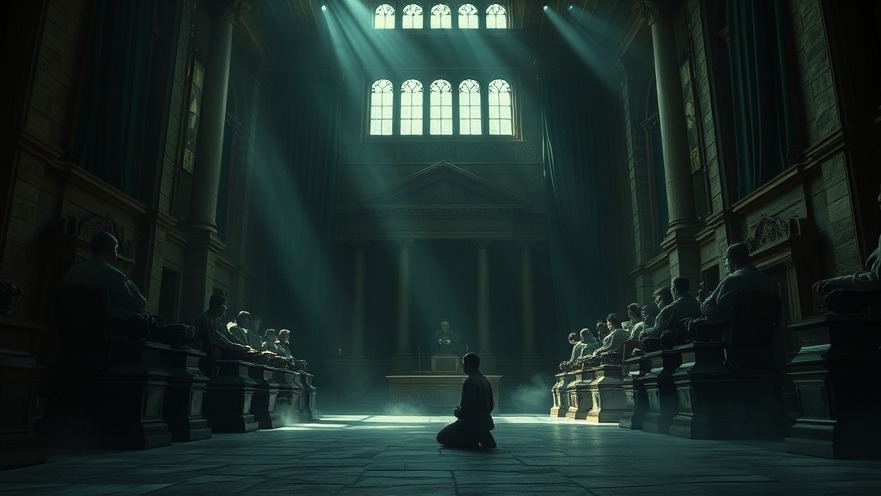
Understanding Despotism and Judicial Power
In his recent discussion, Dutch Sheets illuminated important themes surrounding the concept of judicial despotism—a daunting notion where a select few wield unchecked power over the populous. This fear resonates strongly with Thomas Jefferson’s warnings from the 18th century, when he cautioned against the judiciary becoming the most powerful branch of government. Presently, the ongoing debates surrounding judicial authority bring desperately required attention to the implications of such concentration of power.
In 'Back At The Court | Give Him 15', the discussion dives into judicial despotism, exploring key insights that sparked deeper analysis on our end.
The Historical Context of Judicial Authority
Tracing back to the founding principles of America, it's clear that the anticipated governmental structure was to include checks and balances among the legislative, executive, and judicial branches. Jefferson perceived the judiciary as a potential threat, particularly if not held accountable as other governmental entities are. The potential rise to tyranny, according to Jefferson, was not from an external force but rather from within—a concept echoed today as many express concern about the Supreme Court's role in societal issues.
Modern Implications: Court Influence and the Role of Faith
As we analyze the impact of the Supreme Court today—especially in cases like same-sex marriage—one begins to understand how a handful of justices can redefine deeply entrenched social norms. This shift not only raises questions about governance and representation but also challenges the biblical foundations that guide many believers. As Sheets advocates, restoring these principles is crucial for moving forward as a nation. It’s not merely about court rulings; it is about the very foundation of societal values and the active role believers can play in advocating for righteousness.
A Call to Intercession: The Power of Prayer
In light of these realities, the call for intercession among believers is imperative. Sheets encourages a return to praying for the Supreme Court and lawmakers, emphasizing that spiritual warfare begins with asking for divine intervention. He invites readers into a communal prayer effort that seeks to rid these institutions of corrupt influences and reinforces faith-driven policies. Identifying the 'strong man' as a metaphor for spiritual strongholds sheds light on the battles that remain ahead, urging believers to stay vigilant in faith and action.
United in Purpose: Decrees for Righteousness
The session concluded with a solemn decree that "righteousness will prevail in the courts of America," echoing a commitment to honest governance. Believers are challenged not only to pray for current leaders but also to actively support those who seek to align with God’s principles. This discourse serves as a reminder of our responsibility in preserving the values upon which this nation stands and the significant power of collective prayer.
 Add Row
Add Row  Add
Add 




Write A Comment